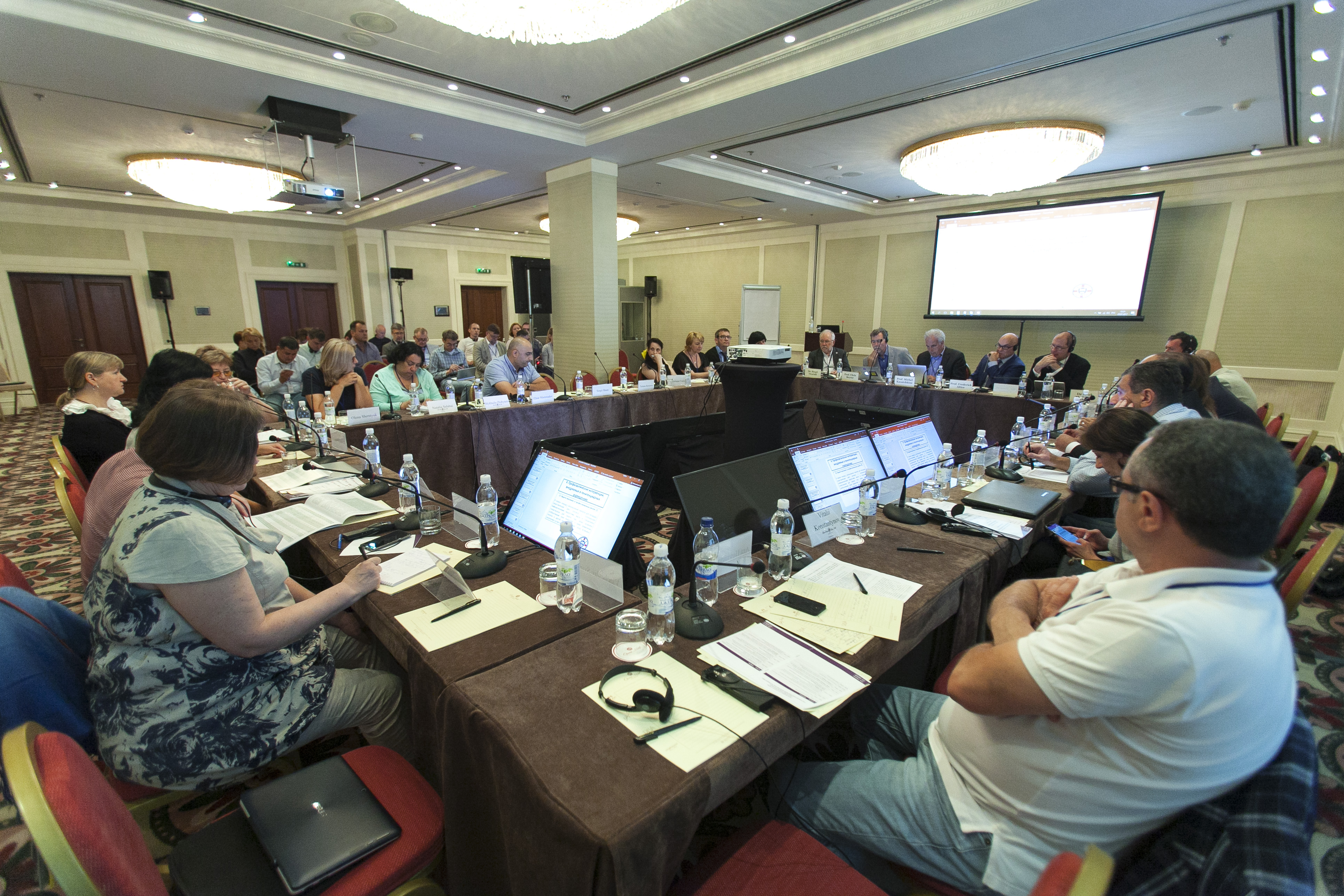A Roundtable Meeting of Key Stakeholders “Health of Prisoners: Scientific Approach for Public Safety”, held in Kyiv on Jul. 28-29, gathered representatives of key stakeholders interacting in drug policy making, medical services provision and criminal justice exercise in the region of Eastern Europe & Central Asia. During the two days, national and international experts discussed risks and problems associated with the limited access of prisoners to prevention and treatment of socially dangerous diseases – HIV, hepatitis C and tuberculosis – in EE&CA.

The Roundtable was attended by UN Secretary General’s Special Envoy on HIV/AIDS in Eastern Europe and Central Asia Prof. Michel Kazatchkine, representatives of the Johns Hopkins Bloomberg School of Public Health, the Yale School of Medicine, the Ukrainian Institute on Public Health Policy, the Justice Ministry of Ukraine, the Health Ministry of Ukraine's Public Health Center, the All-Ukrainian Network of PLH, the USAID, Pact Inc. and EU-ACT, as well as experts and civil society activists from the EE&CA region.
Dr. Sergii Dvoriak of the Ukrainian Institute on Public Health Policy and Prof. Frederick Altice of the Yale University School of Medicine moderated the event.
According to the Roundtable participants, the prevalence of infections in EE&CA penitentiaries is one of the world's highest. This is due to the policy that results in congestion of people, who inject or otherwise consume drugs, in these institutions, while putting other inmates in jeopardy of catching HIV, viral hepatitides and tuberculosis. Because of this policy, the HIV, hepatitis C and tuberculosis infection prevalence in EE&CA is several times as high as in local communities.
Specifically, about 60,000 prisoners in Ukraine have limited access to prevention and treatment of especially dangerous infections. According to research, 60% of them have hepatitis C and 20%, HIV, whereas 75% of new tuberculosis cases occur just in penitentiaries, drug injection being the main means of HIV and hepatitis C transmission there. ("The perfect storm: incarceration and the high-risk environment perpetuating transmission of HIV, hepatitis C virus, and tuberculosis in Eastern Europe and Central Asia," The Lancet, Jul. 14, 2016).
An analysis of the situation in the region suggests that imprisonment can facilitate occurrence of about a half of all new HIV cases among injection drug users. Therefore, scaled up substitution therapy in penitentiaries and effective support of ex-convicts during their treatment in local communities can significantly reduce the dangerous infection transmission level in this group.
In Ukraine in particular, and in the EE&CA region in general, increasingly more attention is being paid to risks, challenges and opportunities for improving the health of drug users in various situations: pre-trial detention, incarceration and discharge. The Roundtable participants pointed out that it would be extremely important to develop mechanisms enabling improvement in the quality of medical services and procedures for provision of care in penitentiaries as well as training of personnel of colonies and prisons. As important is to ensure access of ex-convicts to integrated care and bring EE&CA countries' health care systems into line with internationally accepted objectives of HIV, hepatitis C and tuberculosis prevention and treatment.
Armenia, Kyrgyzstan and Moldova have successfully implemented all the 15 UN-recommended HIV preventions strategies, including methadone therapy as well as syringe and needle exchange programs, which are nevertheless not spread enough to meet the demand.
Special attention during the event was given to interaction between the authorities responsible for public safety and those engaging in public health. The participants arrived at a conclusion that key stakeholders in the two areas should cooperate based on scientific accomplishments and together counteract stigma and discrimination, which have a negative impact on the health of both individual persons and the society as a whole.
The Roundtable discussion outcomes will be used to develop recommendations for the Ukrainian government, ministries and other agencies. Extending access of prisoners to medical services will make it possible to significantly reduce the pace of HIV/AIDS, tuberculosis and hepatitis spread in the society.
Program (RU/ENG)
Программа Круглого стола «Здоровье заключенных: научный подход ради безопасности общества» (RUS)
The Program of Roundtable Meeting 'Health of Prisoners: Scientific Approach for Public Safety' (ENG)
Summary of Conclusions (RU/ENG)
Выводы Круглого стола «Здоровье заключенных: научный подход ради безопасности общества» (RUS)
Speakers presentations (RU/ENG/UKR)
- Prof. Chris Beyrer, Johns Hopkins University School of Public Health
- Prof. Michel Kazatchkine, UN Secretary General’s Special Envoy on HIV/AIDS in Eastern Europe and Central Asia
Building a common space of public health in Ukraine (UKR)
- Prof. Natalia Nizova, Public Health Center of Ukraine
Drug use in prison. Policy and incarceration (ENG)
- Mr Robert Teltzrow, Pompidou Group of Council of Europe
Regional focus: HIV and related infections, prisons and treatment, in and out (ENG)
- Prof. Frederick Altice, Yale University School of Medicine
- Dr. Volodymyr Kurpita, All-Ukrainian Network of PLWH
- Dr. Svetlana Doltu, Moldova
Harm reduction programs in Kyrgyzstan prisons: achievements and barriers (ENG)
- Lyuba Azbel, Yale University School of Medicine
Session "CJS and health in Belarus, Georgia, Armenia, Azerbaijan, Kazakhstan, Kyrgyzstan"
Belarus. (RUS) Speaker Oleg Aizberg
Georgia. (RUS) Speaker Nino Eremadze
Armenia. (RUS) Speaker Ara Hovhannisyan
Kyrgyzstan. (RUS) Speaker Ainura Syrgataeva
Kazakhstan. (RUS) Speaker Assel Terlikbayeva

